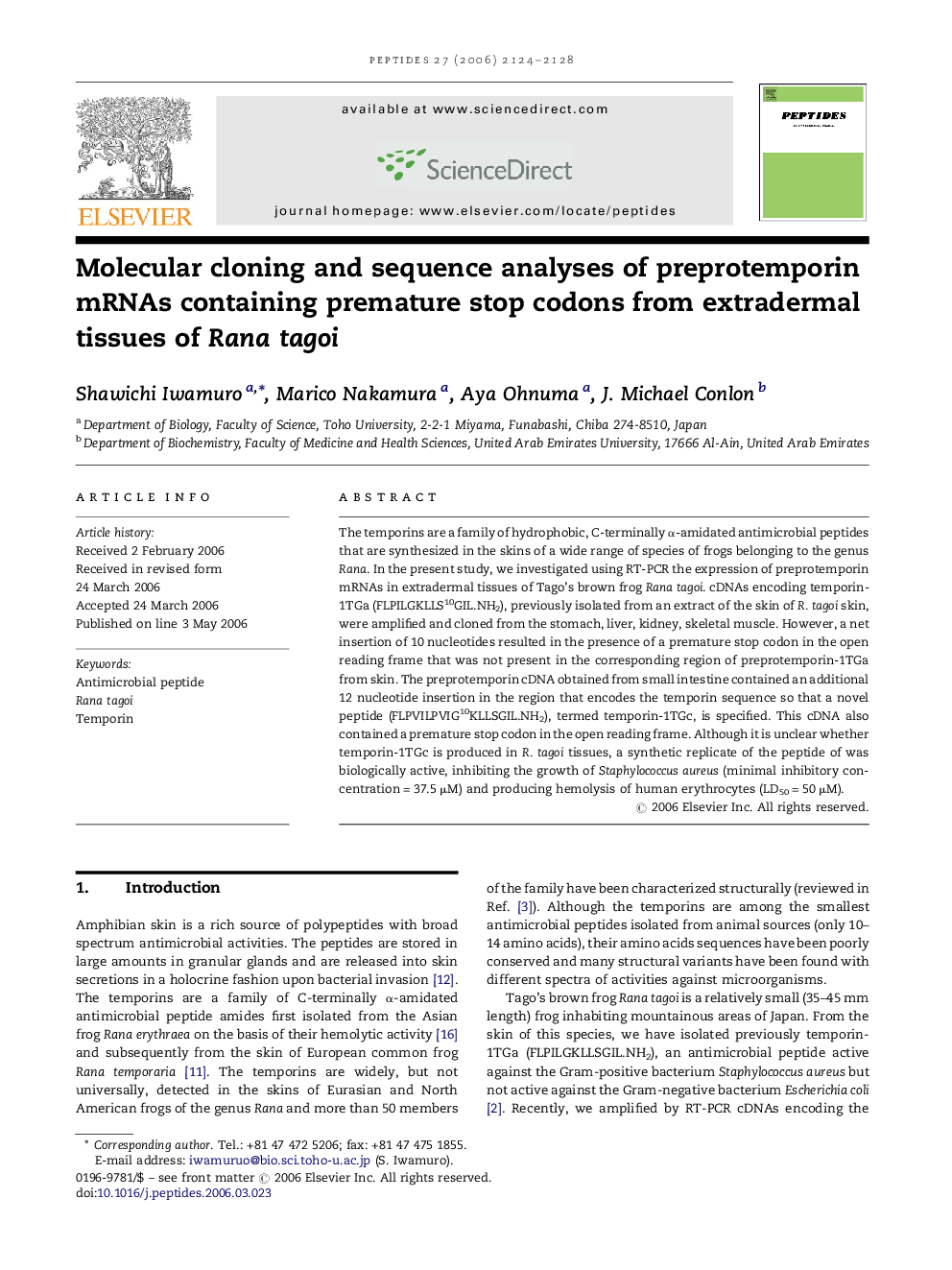| Article ID | Journal | Published Year | Pages | File Type |
|---|---|---|---|---|
| 2007955 | Peptides | 2006 | 5 Pages |
Abstract
The temporins are a family of hydrophobic, C-terminally α-amidated antimicrobial peptides that are synthesized in the skins of a wide range of species of frogs belonging to the genus Rana. In the present study, we investigated using RT-PCR the expression of preprotemporin mRNAs in extradermal tissues of Tago's brown frog Rana tagoi. cDNAs encoding temporin-1TGa (FLPILGKLLS10GIL.NH2), previously isolated from an extract of the skin of R. tagoi skin, were amplified and cloned from the stomach, liver, kidney, skeletal muscle. However, a net insertion of 10 nucleotides resulted in the presence of a premature stop codon in the open reading frame that was not present in the corresponding region of preprotemporin-1TGa from skin. The preprotemporin cDNA obtained from small intestine contained an additional 12 nucleotide insertion in the region that encodes the temporin sequence so that a novel peptide (FLPVILPVIG10KLLSGIL.NH2), termed temporin-1TGc, is specified. This cDNA also contained a premature stop codon in the open reading frame. Although it is unclear whether temporin-1TGc is produced in R. tagoi tissues, a synthetic replicate of the peptide of was biologically active, inhibiting the growth of Staphylococcus aureus (minimal inhibitory concentration = 37.5 μM) and producing hemolysis of human erythrocytes (LD50 = 50 μM).
Keywords
Related Topics
Life Sciences
Biochemistry, Genetics and Molecular Biology
Biochemistry
Authors
Shawichi Iwamuro, Marico Nakamura, Aya Ohnuma, J. Michael Conlon,
